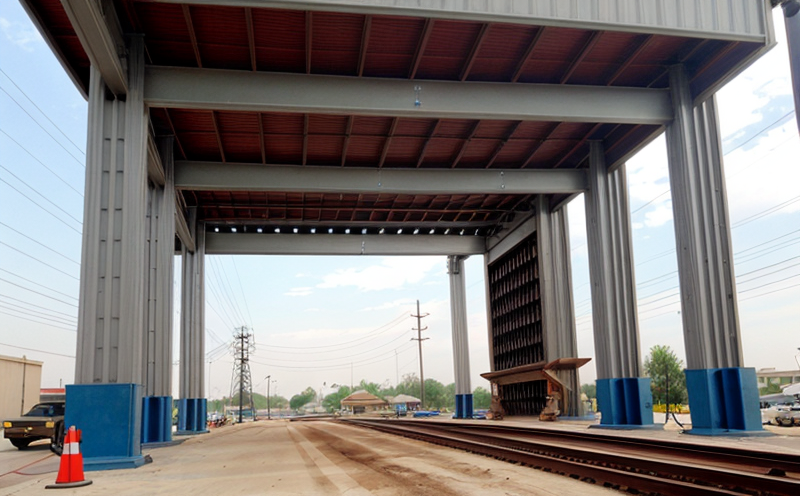EN 6072 Thermal Fatigue Testing of Aerospace Materials
The EN 6072 thermal fatigue testing standard is a critical process used in aerospace and aviation industries to evaluate the durability and reliability of materials under extreme temperature variations. This test focuses on assessing how well structural components can withstand repeated cycles of heating and cooling, simulating real-world operational conditions that materials face during flight operations.
The primary purpose of thermal fatigue testing is to ensure that critical aerospace parts, such as engine turbine blades, landing gears, and other high-stress components, maintain their integrity over time. The test involves subjecting specimens to controlled temperature changes while monitoring material properties like strength, ductility, and microstructure stability.
The EN 6072 standard is widely recognized for its stringent requirements on testing procedures, ensuring that the results are both accurate and repeatable. This meticulous approach helps manufacturers and suppliers comply with regulatory standards, enhance product safety, and meet customer expectations. The test can be conducted on a variety of materials including metals (aluminum alloys, titanium), composites, and polymers.
During thermal fatigue testing, the specimen is subjected to repeated cycles where it alternates between high temperatures that cause expansion and low temperatures that lead to contraction. This process creates stress within the material which, over time, can lead to cracking or failure if not properly designed and tested. By following EN 6072 guidelines, engineers gain insights into how materials behave under these conditions, allowing for improvements in design and manufacturing processes.
The test setup typically includes specialized equipment capable of precise control over temperature ranges and rates of change. Specimens are often held in a furnace or chamber where they undergo heating to around 80% of their melting point followed by rapid cooling back down to ambient temperatures. The number of cycles can vary depending on the specific material being tested but generally spans from several hundred up to thousands.
One significant challenge when performing thermal fatigue tests according to EN 6072 is maintaining consistent and accurate temperature control throughout each cycle. Variations in heating or cooling rates could lead to erroneous results, making compliance with international standards crucial for obtaining reliable data. Another critical aspect of this testing procedure lies in specimen preparation; ensuring that the sample accurately represents the intended application while minimizing any potential flaws such as cracks or porosity.
Customer Impact and Satisfaction
- Ensures compliance with international aviation standards, enhancing overall product safety.
- Promotes trust among customers by demonstrating adherence to rigorous testing protocols.
- Facilitates smoother supply chain management as suppliers can reliably meet quality expectations.
Aerospace OEMs and Tier 1 suppliers rely heavily on EN 6072 thermal fatigue testing because it helps them identify potential weaknesses early in the development process, allowing for necessary adjustments to be made before production begins. This proactive approach not only reduces costs associated with recalls or failures but also improves brand reputation.
International Acceptance and Recognition
The EN 6072 standard has gained widespread acceptance within the global aerospace industry due to its comprehensive coverage of various materials used in aircraft construction. Organizations like Airbus, Boeing, and Rolls-Royce have incorporated these tests into their quality assurance programs, ensuring that all components meet stringent performance criteria.
By participating in thermal fatigue testing according to EN 6072 guidelines, companies demonstrate their commitment to meeting international standards, which is essential for doing business globally. This recognition also opens doors to new markets and partnerships with other leading players in the sector.
Competitive Advantage and Market Impact
- Achieves faster time-to-market by identifying issues early in development cycles.
- Reduces risk of costly failures during operational phases through thorough pre-testing.
- Enhances reputation as a leader in innovation within the aerospace sector.
Compliance with EN 6072 not only sets companies apart from competitors but also positions them favorably among regulatory bodies and end-users. By consistently delivering high-quality products that pass these stringent tests, firms can build long-term relationships based on reliability and performance.





